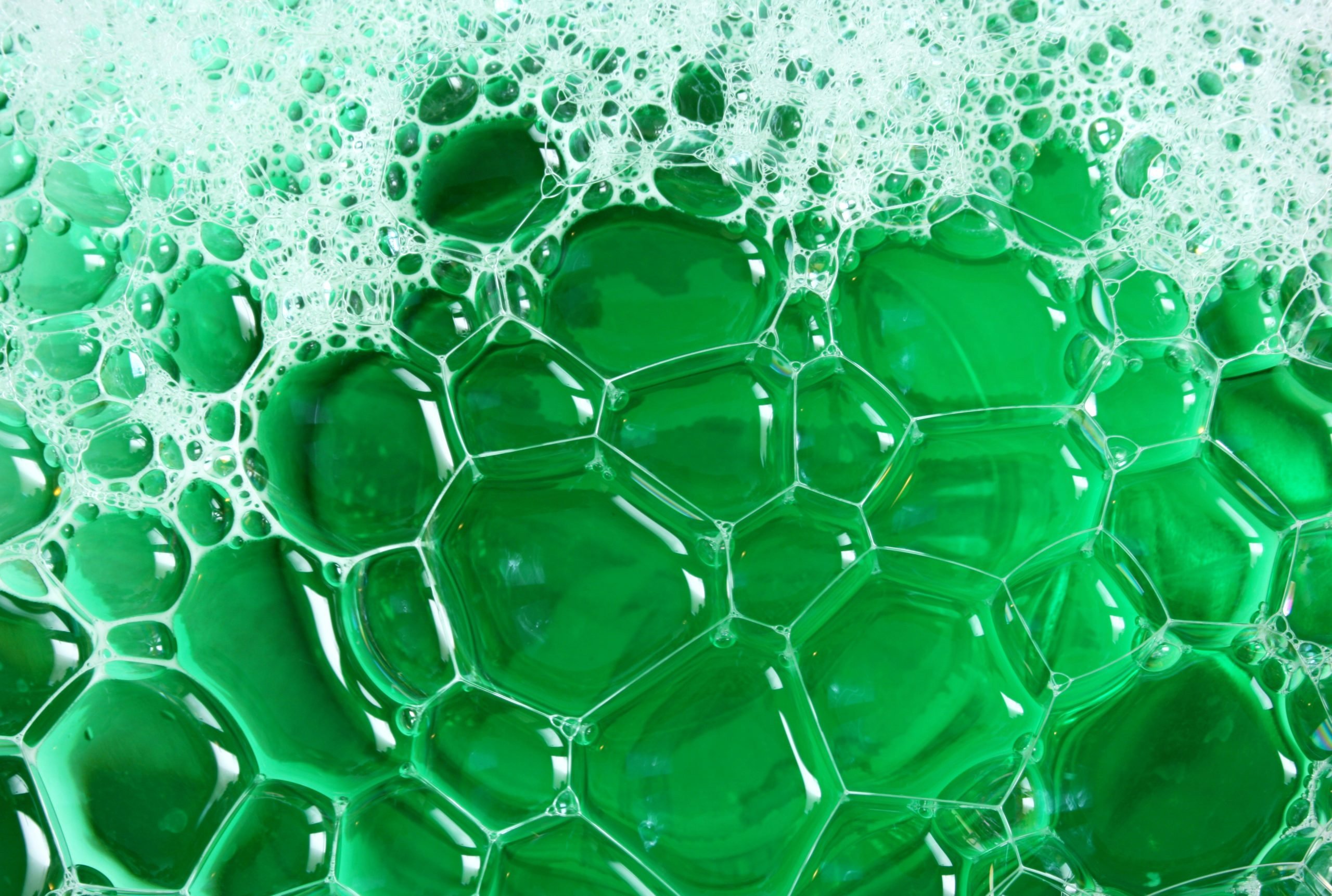
Warning: Danger ahead!
It’s no wonder we use dish soap to clean more than just our dirty dishes. Relatively inexpensive and conveniently located on the kitchen counter, it’s easy to grab and glug onto a sponge or into a bucket. But while dish soap is a great multitasker, it’s not the best choice for everything in your home.
That’s because dish soap isn’t actually a soap but a detergent. What’s the difference? Soaps encapsulate dirt and oil so they can be washed away under running water. Detergents, on the other hand, actually break up the dirt so it can’t settle back onto what’s being cleaned, as it might in a washing machine when the water drains out. That difference means that detergents—including dish soap—are too strong for some materials. Once you learn the dos and don’ts of using dish soap, find out the things you should never clean with vinegar.
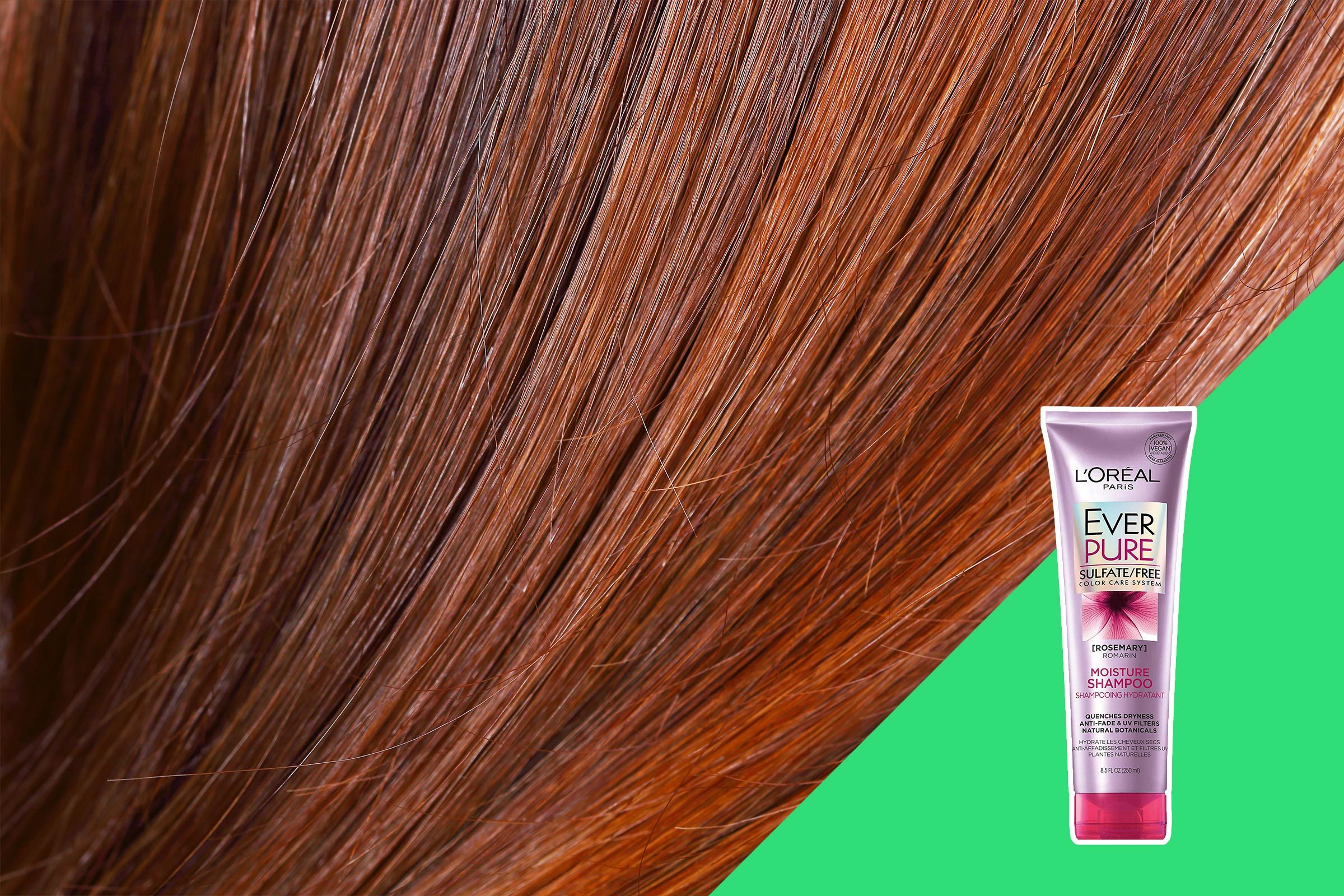
Your hair
Love the way dish soap gets even your greasiest casserole dishes squeaky clean? That’s exactly why you should never sub dish soap for shampoo. “You end up completely stripping your hair of all its natural oils,” says Amelia Trammell, a colorist at Local Honey in Nashville. “That is especially terrible for anyone who uses hair color because healthy hair retains color better than damaged hair.”
What to use instead: Treat your locks to a mild, sulfate-free shampoo (and conditioner) like this affordable L’Oréal Paris EverPure moisturizing duo, which will keep color from fading. While we’re on the subject, also make sure to avoid these hair color mistakes that could completely ruin your hair.
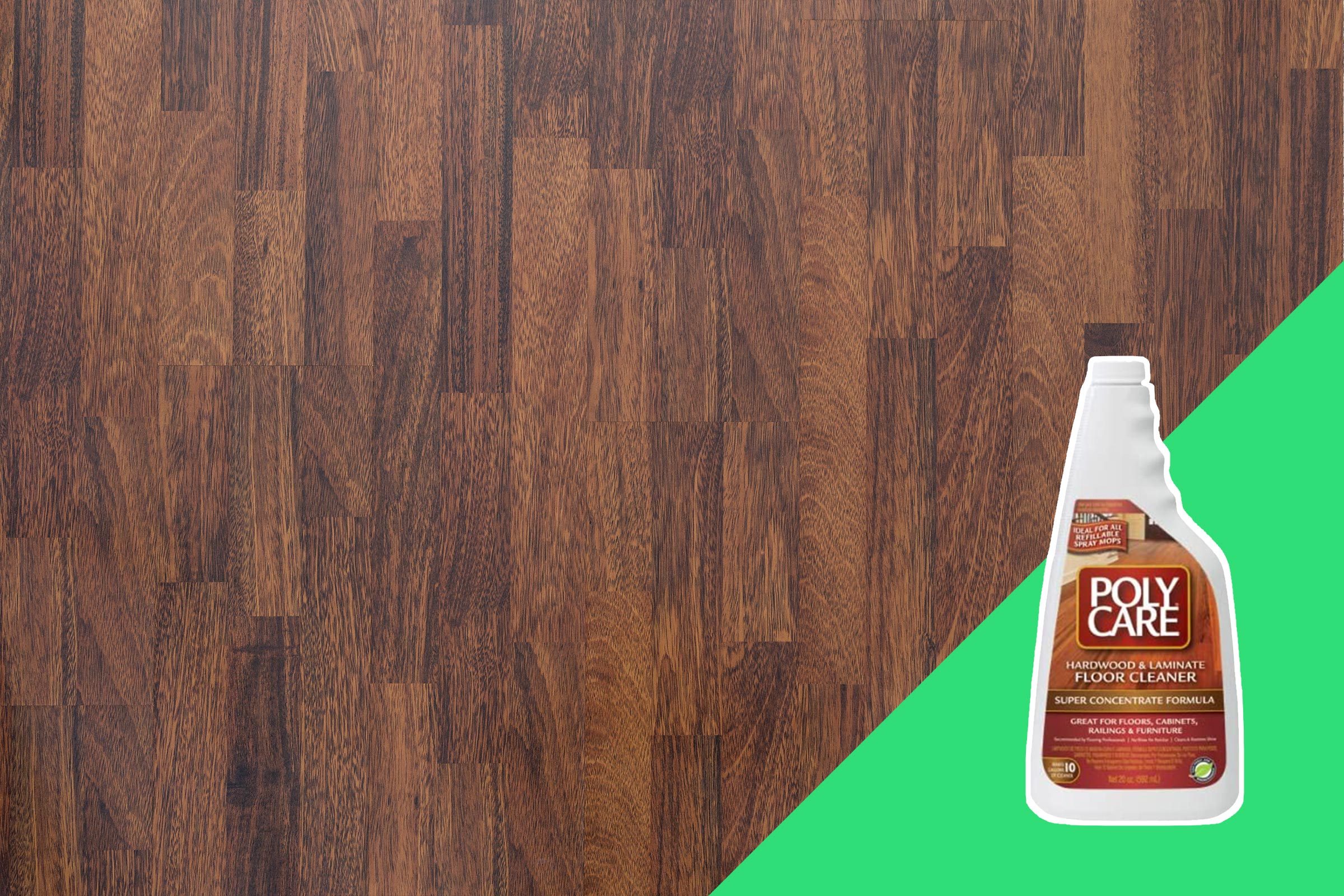
Hardwood floors
The wood floors in your home are meant to take a pounding, but improper cleaning can leave them scratched and dingy. To clean them the right way, start by sweeping or vacuuming to remove sand and grit that could leave microscopic scratches in the finish. Next, wet-mop the floors with a gentle cleanser made specifically for wood flooring. “It’s important to choose the right cleaner for hardwood floors,” says Bruce Johnson, a DIY wood restoration expert with Minwax. “Your soapy dishwashing water won’t do it—and can leave behind a film.”
What to use instead: Opt for a product like PolyCare, which cleans all kinds of hardwood floors. Both professionals and Amazon reviewers rave about it, saying that it works better than more expensive options. Keep the shine going with these other tips for getting and keeping your hardwood floors clean.

Dishes…when they’re in the dishwasher
Dish soap plus dishes should always equal success, right? Wrong. It turns out that the lather clouds that work so well in your sink are really bad for your dishwasher, which wasn’t built to handle all those bubbles. “Bosch Home Appliances recommends using only detergent specifically designed for dishwashers, which is formulated to provide the best cleaning experience for your dishes and utensils,” says Richard Tarrant, director of dish care for Bosch, which makes, among other things, dishwashers. “We also encourage users to not use hand-dishwashing products in the dishwasher in order to avoid damage to the dishwasher or dishware.”
What to use instead: While there are a variety of detergents that will work well in your machine, Bosch specifically recommends the brand Finish. Bonus: Finish’s Powerball tablets will make your job particularly easy, especially since using too much detergent is one of the ways you might be shortening the life of your dishwasher.
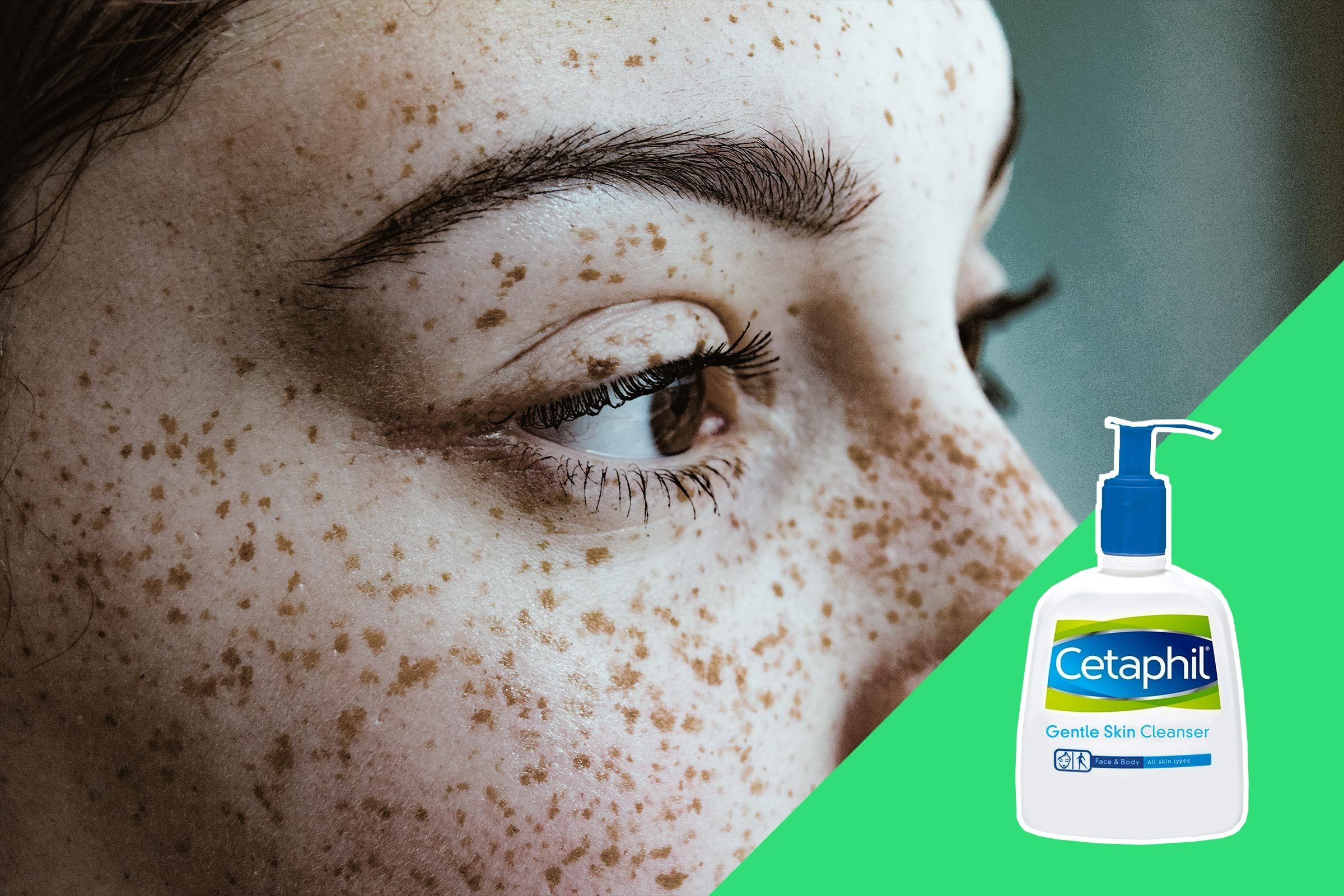
Your face
You might think that dirt-busting dish soap is a great, low-cost way to remove a day’s worth of makeup, sweat, and oil, but, according to skin professionals, using it on your face is a bad idea. “Dish soap removes oil, which is what protects skin, especially in the wintertime,” says South Carolina–based dermatologist Greta Zimmerman, DO.
What to use instead: “Go with a mild cleanser, and only use it where you need it. We overwash in America—hit the dirty spots, and don’t go overboard.” Dr. Zimmerman says that Cetaphil is a gentle, effective, and safe cleanser for sensitive skin. If your skin still feels tight, use this guide to find the best moisturizers and anti-aging creams dermatologists trust the most.
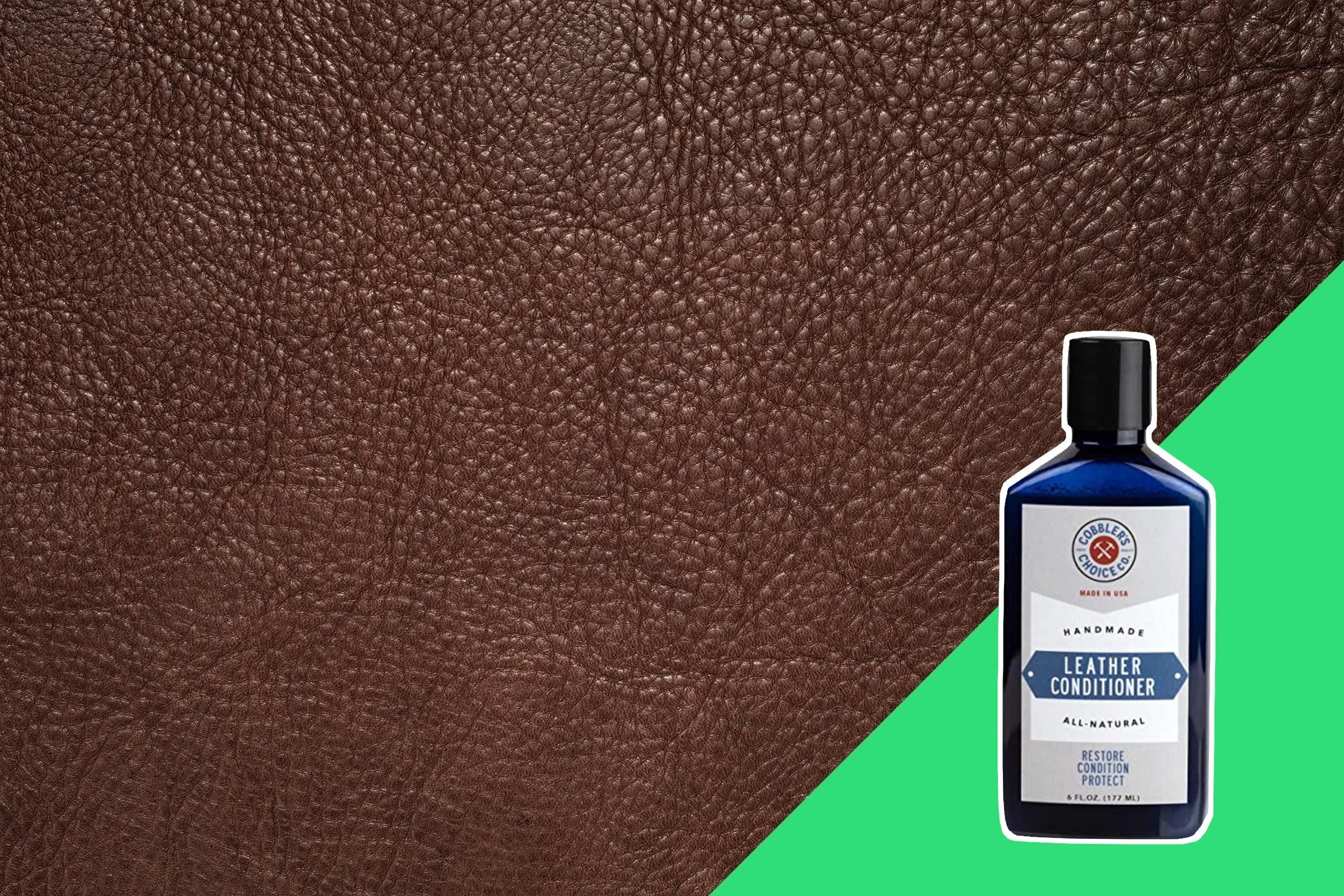
Leather
Your skin isn’t the only thing that needs to hold onto its natural oils. Strip away the natural emollients in leather and you might find your good leather shoes, purses, and car seats cracking under the pressure. “Dish soap is great for cleaning up a pair of dirty sneakers—I use it on my kids’ shoes all the time,” says David Mequita, a vice president with the Leather Spa in New York. “But not on fine leather. It could be too harsh.”
What to use instead: Experts suggest wiping away dirt with a damp cloth, then applying a moisturizing product to keep leather supple. Formulated with seed oils, triple-filtered beeswax, and naturally occurring lipids, this leather conditioner from Cobbler’s Choice Co. hydrates without creating an oily mess. FYI, here’s how to clean every type of shoe.
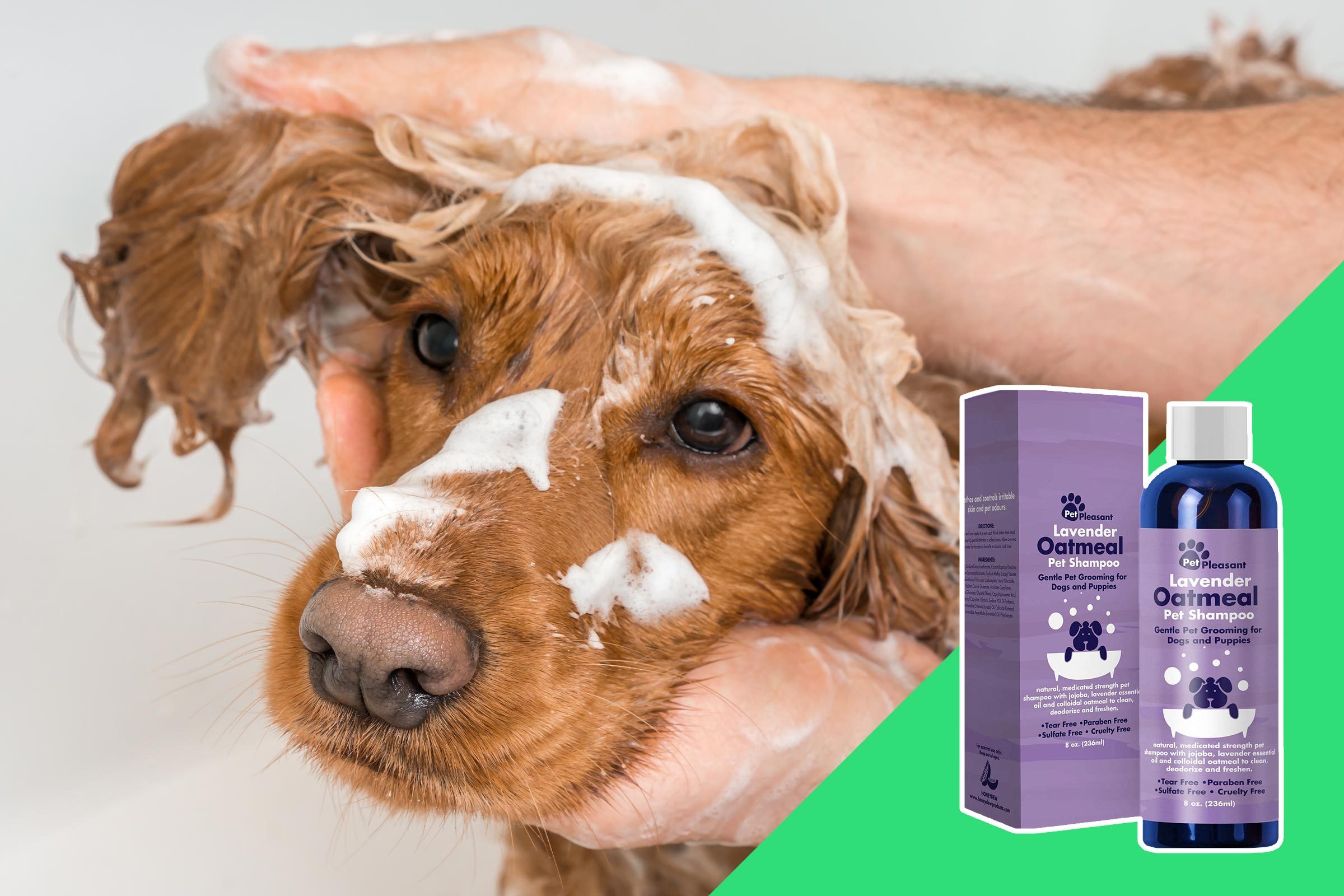
Your dog
Wondering how to deal with the stinky, dirty, smelly mess that used to be your adorable pooch? Don’t reach for the dish soap. It’s not that it isn’t safe. In fact, Dawn dish soap is used by marine rescue organizations to remove environmental oil and tar from seals and sea birds. But those oil-removing superpowers that make it so effective against industrial muck are too harsh for regular use and could dry out your dog’s skin and coat. Grabbing your shampoo isn’t a good idea, either. Since it’s formulated for a human’s pH level, it could irritate your dog’s skin.
What to use instead: “The average dog owner should stick to shampoo designed for dogs,” says Robin Illchuk, who shows, raises, and breeds Portuguese Water Dogs. “If your dog is super greasy, add a drop or two of Dawn, but be prepared to rinse for ten minutes so you don’t leave residue in the dog’s coat.” Instead, you want something like Pet Pleasant Dog Shampoo. It’s formulated with oatmeal, which can soothe flaky, irritated skin, as well as lavender, which smells great. It’s also cruelty-free, doesn’t contain parabens or sulfates, and has close to 9,000 positive reviews on Amazon. Sold! Don’t miss these other pet products with nearly perfect reviews.
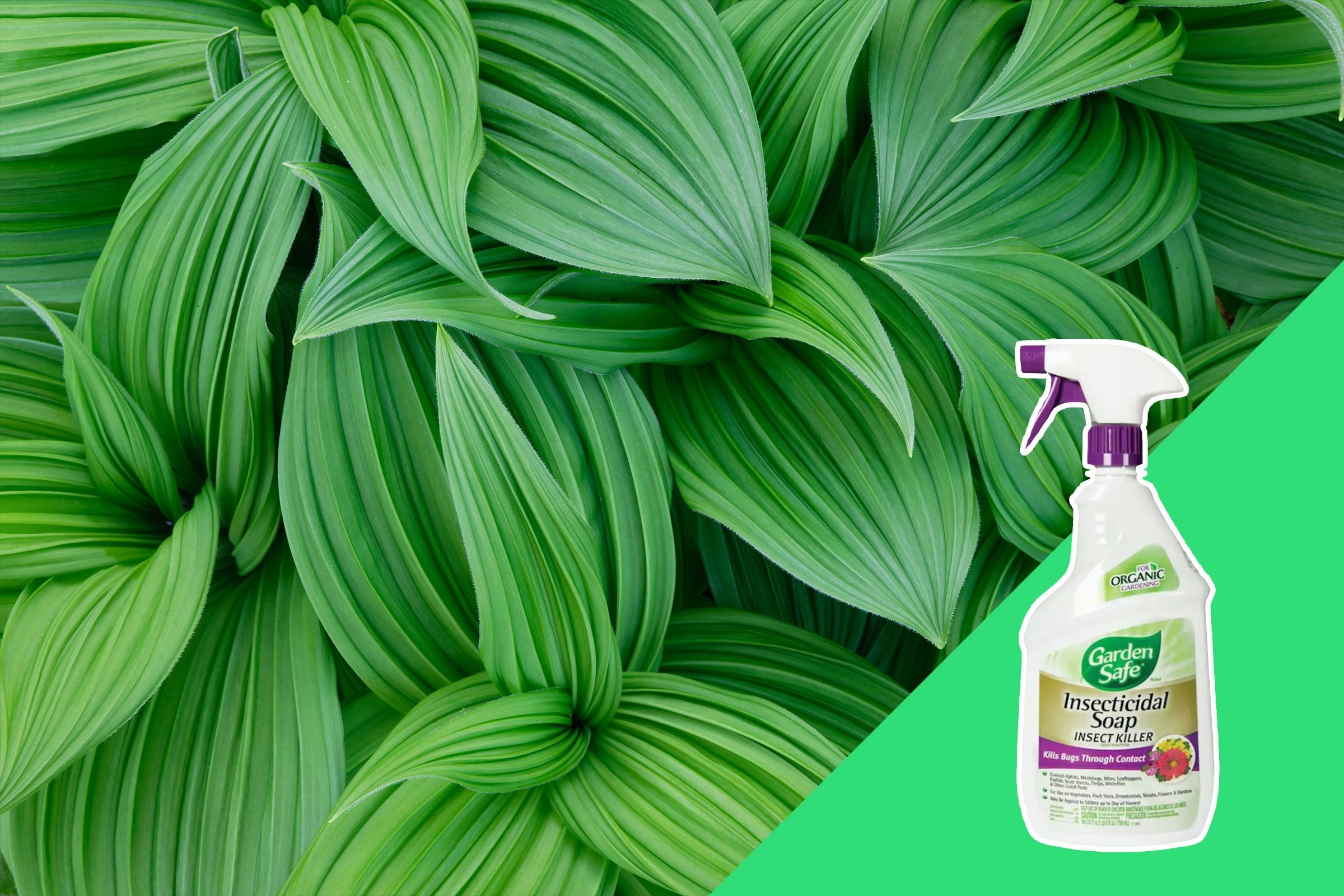
Your plants
The Internet is rife with recipes for DIY formulas for insecticidal soaps, and for good reason—they’re inexpensive, safe for the environment, and won’t leave residue on your plants. According to gardening experts, though, many dish soaps are not only too harsh to use on plants, but they’re also often not all that great at warding off pests either. True insecticidal soap is surprisingly kind to plants and deadly to insects.
What to use instead: Try Garden Safe Insecticidal Soap, which can be used on edibles right up until the day of harvest. Here are more chemical-free ways to keep your plants healthy.
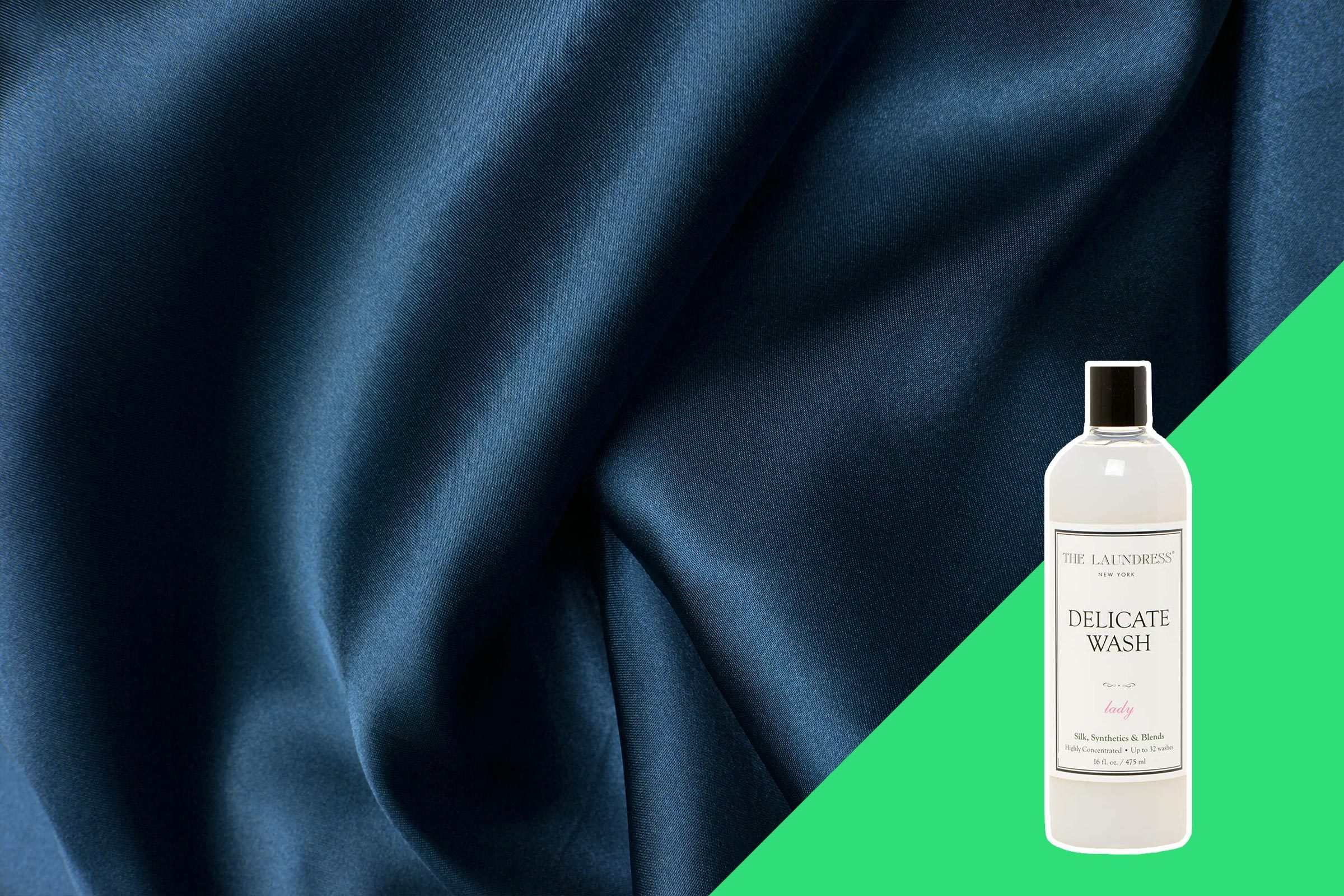
Silk clothing
Do you really need to buy a special detergent to clean delicate fabrics like silk? Unless you’re willing to risk damaging your best silk blouse, the answer is yes.
What to use instead: “Silk is a protein similar to the protein that makes up our hair, so you need to use a fabric-specific formula that treats this fabric with care,” says Gwen Whiting and Lindsey Boyd, cofounders of The Laundress. “Our delicate wash formula uses enzymes derived from plants to clean and preserve silk fabric, even those considered dry clean only.” To wash your silks, swish them gently in the sink in the soapy solution for up to 30 minutes. Rinse, press out the excess water, and then lay flat or hang to dry. Alternatively, you can wash them on the gentle cycle in the washing machine in a mesh bag. Follow this helpful guide to make sure you know how to do laundry the right way.
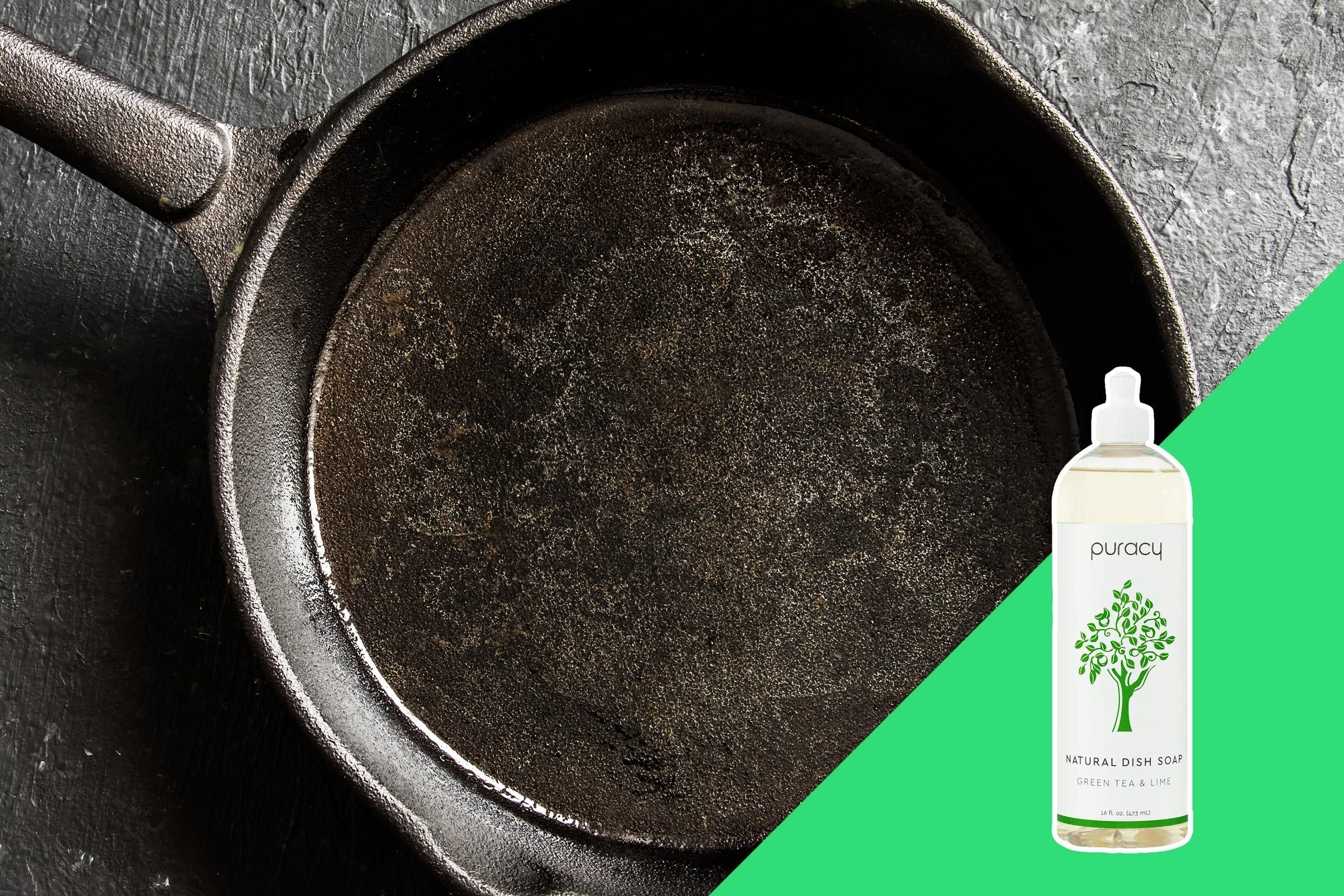
Your cast-iron frying pan
Cast-iron aficionados know that before using their new pans for the first time, they need to spend time infusing them with oil to create a slick, remarkably non-stick surface. Over time, that finish, which is called seasoning, only gets better. Dish soap, which is made to remove grease, would remove that coating.
What to use instead: Experts recommend cleaning pans with just a scrubber (or coarse salt) and water. If you end up needing an assist, it’s OK to treat your pan to an occasional soapy scrub, but stick to eco-friendly dish soaps (which are less effective at removing oil) and be sure to dry and re-oil your pan immediately. Sulfate-free Puracy Natural Dish Soap uses coconut-based cleaners to remove tough, dried-on food; the lime and green tea scent will keep your kitchen smelling terrific, too.
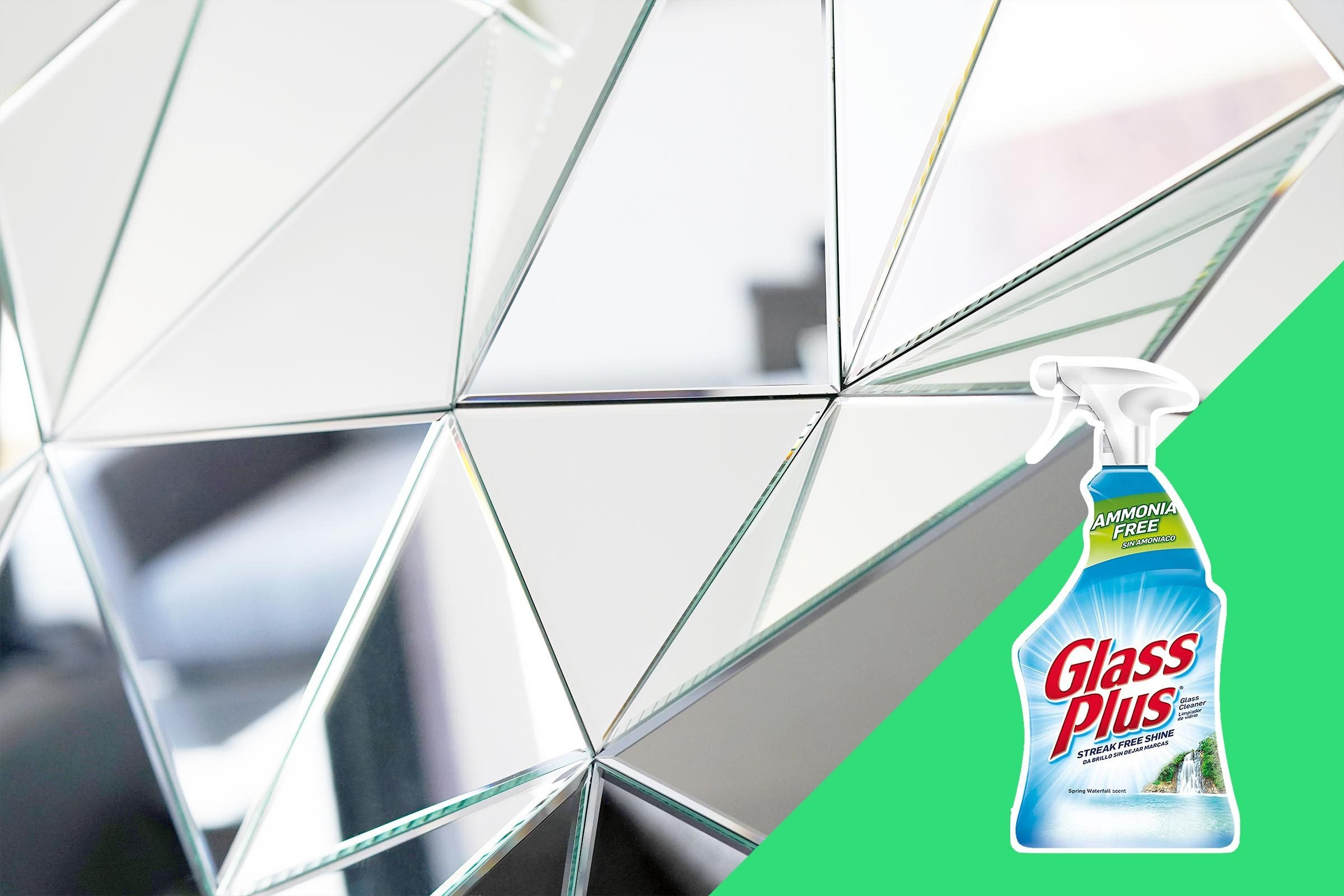
Mirrors
There’s a reason many professional window washers rely on dish soap to remove dirt that’s been caked onto windows for months—it works on windows like it does on wine glasses, bringing dirt and oil to the surface, where it can be rinsed down the drain. But unless you’re willing to take a hose to your mirrors to rinse away the soap, it’s nearly impossible to wipe away the streaky, hazy mess it leaves behind. “Dish soap does have a way of leaving streaks if it isn’t rinsed,” says Jessica Ek of the American Cleaning Institute.
What to use instead: “A product formulated to clean a particular surface or material is always the most effective option,” Ek says. Economical and widely available, Glass Plus will keep your mirrors streak-free. Plus, its ammonia-free formula is easier on the frames and walls that surround your mirrors than some of its popular competitors. By the way, a mirror is also one of the things you shouldn’t be cleaning with paper towels.
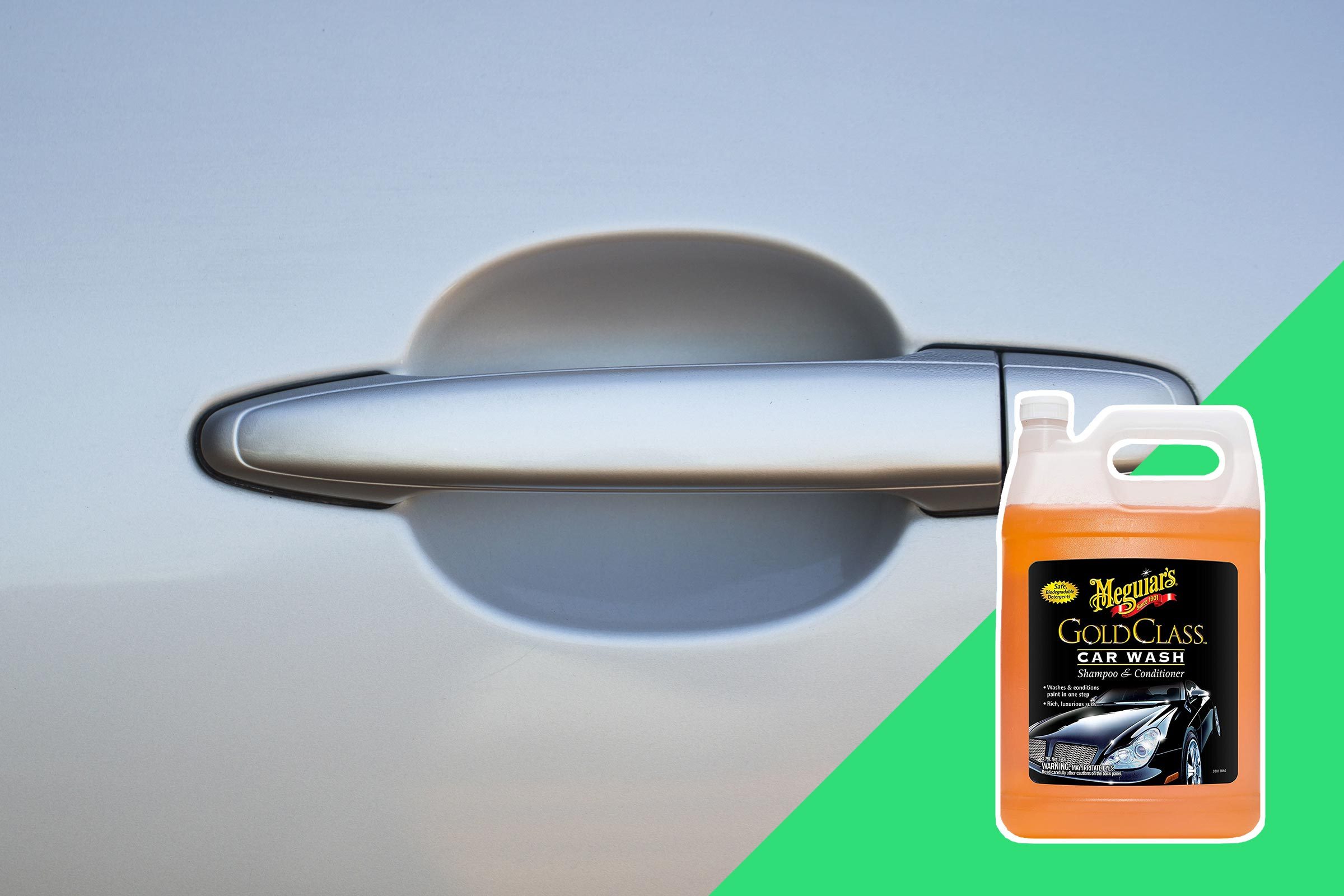
Your car
Auto paint shrugs off everything from road ice and other chemicals to hail and those bushes you sideswiped, but wash it with dish soap and it won’t be long before you’ve permanently damaged the finish. That’s because dish soap strips away the protective coating applied to the paint by the manufacturer, leaving it vulnerable to fading and oxidation, which turns the finish dull and chalky.
What to use instead: To properly wash your car, wait for a cool, cloudy day and lather up with a cleanser specifically developed for cars, such as Meguiar’s Gold Class, which conditions paint while it cleans. Rinse your car’s exterior, then dry it thoroughly with a soft cloth or chamois. Here are more everyday things auto experts will never let touch their cars.
Sources:
- Amelia Trammell, a colorist at Local Honey in Nashville
- Bruce Johnson, a DIY wood restoration expert with Minwax
- Richard Tarrant, director of dish care for Bosch
- Greta Zimmerman, DO, a dermatologist in South Carolina
- Robin Illchuk, owner of Whoosh Portuguese Water Dogs
- Jessica Ek, director of digital communications at the American Cleaning Institute
